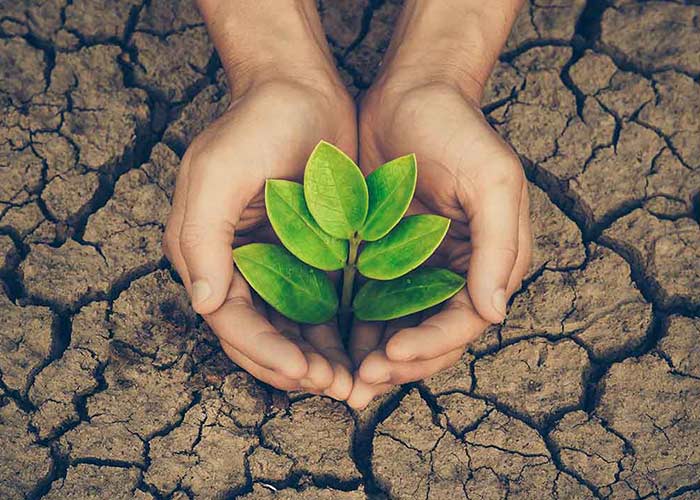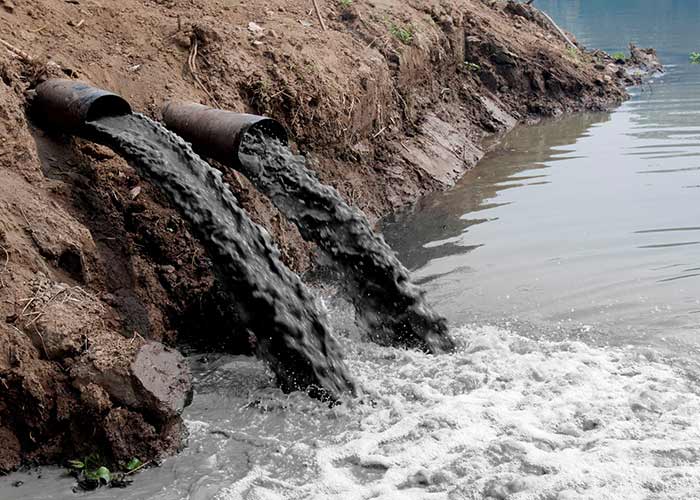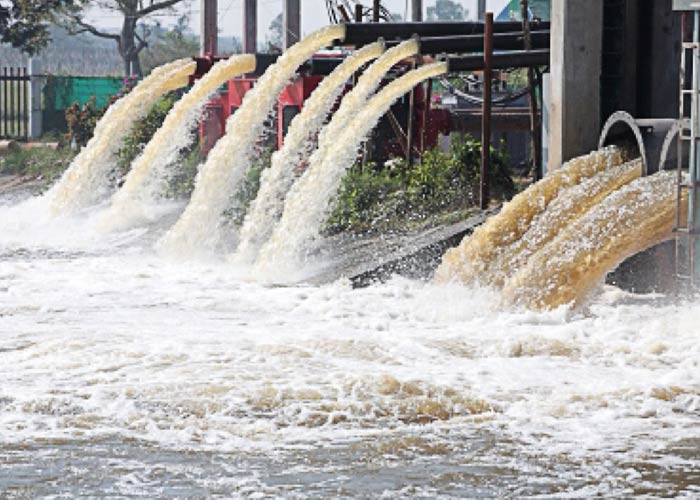Environmental protection generally refers to the preservation of trees and greenery, but in a broader sense it includes protection of trees, plants, animals, birds and the entire planet. In fact, there is a unique relationship between environment and life. Environmental protection is critical to the survival and the future of mankind.
Today, environmental degradation and climate change have affected the entire mankind. The whole world needs to be one to overcome this problem. But, poor countries who mainly depend on the natural environment for their existence need help from developed countries to be able to deal with environmental concerns.
Why is environmental protection necessary? How can we protect and conserve our environment?
Environmental protection is very important as man is dependent on Nature for life. There are many small things you can do to reduce the ill-effects on the environment. For instance, whenever you go out of the room, make it a rule to switch off electrical appliances. In case of no work, turn off all electric devices. Other environment-friendly measures are detailed below:
Some environment protection measures
- Environmental protection begins from family
Family is the first school of environment-learning in the right sense. Family members can give the right kind of lessons in environmental protection to the children through many illustrations. The responsibility of every plant in the house can be given to each member, especially to the children. Let them know the names of trees and plants, and share specific things related to them. Animals should be reared in the house so that children develop a bond with them. They should also be given projects such as ‘herbarium files’. They need to break themselves free from computer games, and the captivity of rooms.
- Imbibe simplicity in life
There was a time when children used to have a deep relationship with plants, butterflies and birds. Recognition of houses was often associated with some tree. Fruits were also associated with the weather. But nowadays, phrases such as ‘seasonal-fruits’ are out-dated. The stone-walls of civilization have not only divided, but have swallowed truthfulness, honesty and earthiness of life. The talk of ‘use and throw’ has moved from lifeless objects to our lifestyle. Simple life seems to have been lost somewhere. Today there are ten solutions of every problem. How complicated we have made our life! We should go for a simple lifestyle to reduce the carbon footprint. To begin with, whenever you go out of the room, make it a rule to switch off electrical appliances.
- Save the Forest Cover
The growth of industries is generally considered as the basis of development. Agriculture and irrigation are emphasized for food production, but not enough attention is paid to the understanding of the importance of forest wealth. Forests are just considered to be encircling the land that can be harvested for farming. Agriculture has also been used for cutting wood and timber; trees have been cut indiscriminately; generally, there is an apathetic attitude to the need to replace them with new trees. Therefore, today we have become poor in terms of the forest wealth and are facing many of its dire consequences for environment.
If the earth remains green with the help of tree-plantation, then man has many direct and indirect benefits. From fuel and timber to fruit-flowers, medicines, air-conditioning, balance of rainfall, organic fertilizers, prevention of earth erosion, floods, to providing shelter to birds eating insects to protect crops, there are countless benefits. As Scottish botanist Robert Chambers has written, if the forest is destroyed, then there will be a shortage of water, the fertility of the land will be reduced and the yield of crops will decrease, the animals will die, the birds will fall. The curse of the forest-annihilation will create five terrible fierceness are – flood, drought, heat, famine and diseases. We inadvertently destroy forest wealth and lose more than what we find from it.
- Plant more and more trees
Trees are the biggest source of oxygen. In the process of photosynthesis, plants emit the most essential oxygen. In this way, trees provide the basis for the life of man. Apart from this, vegetation also forms the diet of the creatures. Flora provides nourishment to us.
We should grow, instead of cutting, trees. Plant must be made a mandatory gift on specific occasions. If every person plants a tree, then environment would improve significantly. The air will be cleaner, the number of trees will increase, and pollution, global warming and greenhouse effect will be reduced.
As a matter of fact, plants and trees have great importance for human beings. They are the basis of human life, but today man is neglecting them by not understanding their significance and usage. With an eye on secondary benefits from them, we are continuously exploiting them. We should plant as many trees as we cut down, but this is not happening and their number is continuously decreasing. As a result, many problems have cropped up before mankind.
In the scriptures, tulsi, banyan, peepal, amla etc have been counted as divine creatures. Trees are part of human family; they keep us alive by providing life energy. They are so much more useful to us. Therefore, we should try to plant more trees. Today, all people should try to adopt measures for environmental protection.
- Avoid packaged food
Minimize the use of packaged commodities as they comprise one-third of the industrial waste. So, think about packaging before buying the product. Individually wrapped candy produces more garbage, while fresh fruits and vegetables are healthier and produce less garbage.
- Avoid red meat
In comparison to beef and pork, fish and poultry have very little impact on the environment, while other protein sources including nuts and organic soy are less harmful to the planet.
- Adopt organic food
The vegetables we eat today are grown using chemicals and pesticides. If we grow vegetables without the use of chemicals and pesticides, it will enhance soil fertility, and will be beneficial for both our health and the environment.
- Help protect -wildlife and rainforests
Do not buy products made from wildlife skins. Do not buy foreign pets who have been brought from the forest. When you do not want to keep your pets, let them go. Before buying a pet, make sure you are ready to take care of it. Keeping a pet is a job of responsibility.
Do not buy wood products from other countries unless you know they are from environment-friendly suppliers. A good way to know whether a wood is favourable to the environment or not, is to see “Authentication Label” on it. An example of an authentication label is “FSC-certified” which means that it follows globally recognized certification system under the forest conservation standards set by Forest Stewardship Council (FSC).
Learn more about rainforests and living plants and organisms. Tell your friends and parents why rainforests are important.
- Consume Less, Repeat, Reuse
Environmental protection and preservation can be achieved with the right approach. Unlike the world of use and throw, the “saving” civilization should be encouraged. Reduce your consumption; for instance, use both sides of the stationery. Take as much food on your plate as you can eat. Goods and commodities should be collected in a tidy manner in the home so that they can be prevented from going into vain. You will do well to drive fuel efficient cars, and do not depend on heaters to keep yourself warm.
Almost all things can be reused. Try to buy products that are capable of recycling. Use the clothes bag: say no to polythene and plastic. Glass, paper, plastic or metal, all these things can be used again. Jars, wine bottles, broken glasses, old newspapers, papers, cardboards etc or any other thing which is no longer useful, can be recycled.
- Reduce water consumption
We should not waste water because water is life. Clean and fresh water is the need of our daily life as well as it is becoming more and more valuable over time and if we are not doing anything to save it so far, water will be more valuable than gold in the future. Therefore, it is very important that whatever we can do to save water and prevent water contamination; we should do with greater efforts. Even our small deeds can help in environment protection. For instance, we should close the basin faucet or tap while brushing and shaving, spent less water during bath, and use washing machine only when dirty clothes are enough to wash. Wash clothes with cold water and do not use dryer. Oil and colour should not be flown in the drains, because they contaminate the rivers and finally the sea.
- Reduce the use of electricity
Prefer to work in sunlight during the day. Turn off the power switch when you do not need electricity. Once you have used an electrical appliance, you should turn it off. Turn off laptop chargers or toasters, as these appliances can consume a “phantom” of energy, even if unplugged from power. This will save not only your electricity bill but also energy consumption. When light bulbs are damaged, replace them with energy-efficient bulbs. To save energy, LED or CFL bulbs have arrived nowadays, replace the bulbs of your home with the new energy-saving devices. Once you leave the office, you should turn off your computer and monitor. So, save energy, by turning off everything when there is no use for electricity, whether it’s lights, TVs, computers, printers.
Use phone, mobile, laptop, etc on ‘power saving mode’. By doing so, you will help in reducing the power consumption. Keep a timer which can run daily and turn off various appliances on auto mode.
A lot of things can be turned off with a power bar change. You can plug all your devices into one area – say, your computer – in a power bar when you are using all the devices. Otherwise, just switch off the power bar on the switch.
- Use renewable energy sources
In USA around 71% of the electricity is produced by burning of fossil fuels which emits greenhouse gases in the environment. An average house operated by a coal utility burn 12,000 pounds of coal in one year which cause about the same amount of pollution as produced by two cars. The use of renewable energy as a source of primary power will be equivalent to planting of 400 plants to reduce indoor pollution.
You should look for resources to generate electricity from renewable sources. Make the most of solar energy; increase the use of solar-cooker. Support environmental issues such as the use of renewable energy.
- Adopt healthier habits
Smoking aggravates cardiovascular diseases and air pollution. The environment can be saved to a great extent by reducing air pollution by not smoking.
- Take regular care of vehicles
Pollution is rapidly increasing due to vehicular emissions. If you take care of your vehicles properly and periodically check their pollution levels, you can contribute greatly to environmental protection and conservation. Also, walk as much as you can to reduce burning of fossil fuel.
Conclusion
Air pollution today is a very serious problem for the entire world. There is acute scarcity of pure air. The clean air present in the atmosphere is the basis of life to people. In its absence, the proportion of other toxic gases increases and causes catastrophe to all living organisms. People who breathe in a polluted air are unlikely to live long and stay healthy. Research scientists believe that the vital air is decreasing in the atmosphere of earth and other harmful elements are increasing. If this is the speed of destruction of the tree wealth, the contaminated gases in the atmosphere will become so much that life on earth will become difficult. The only solution to this difficult situation is green enrichment. Experts say that if greenery is not cultivated, the problems like global warming will assume terrible proportions.
In ancient times, the saints and hermits used to raise and nurture trees near their ashram. They were acutely aware of environmental protection. They considered vegetation to be life-giving and gave paramount importance to raising trees.
Unfortunately, some people believe that only the government and the big companies in general should do something for the protection of environment. This is far from true. In fact, every person can contribute towards protecting the environment from pollution, residues, emissions, all kinds of wastes and increasing population. Everyone should be entrusted with the responsibility and authority to take care of environment.







